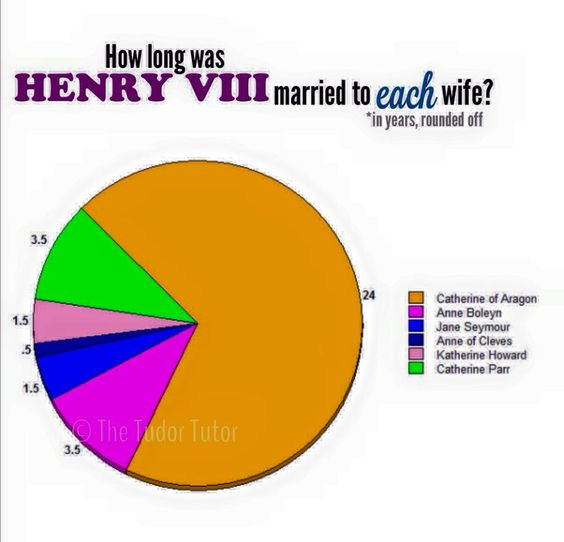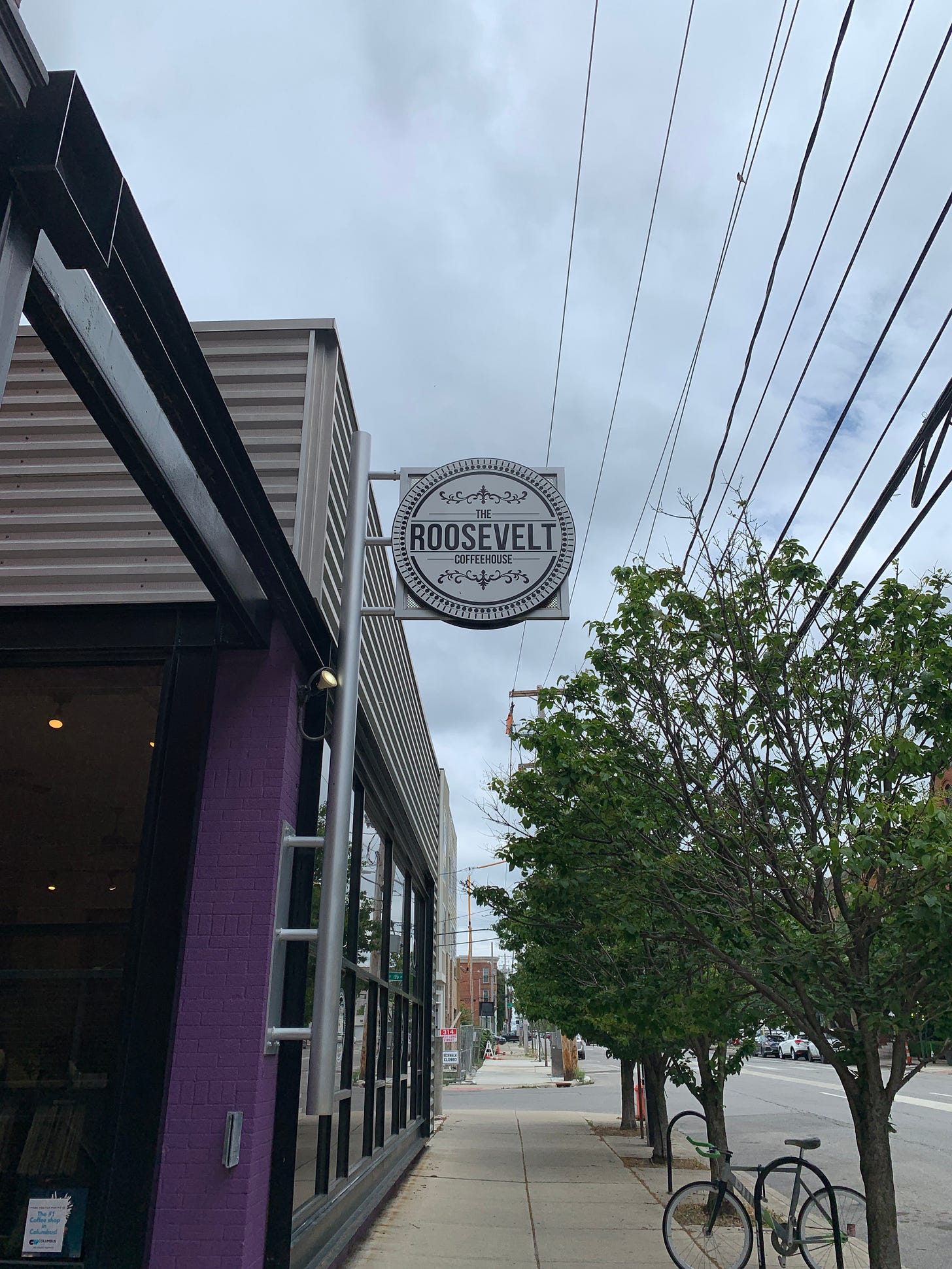OOO #37: Outfits, Ohio, and Other Things I Like
I promise I have other hobbies, my fave little cafe, and combining two interests
Outfits
Ohio
This summer, I spent a fair amount of my time at The Roosevelt Coffeehouse on Long Street. It is unusual for me to do work at a coffee shop (I’m more of a “at my desk” or “on my couch” kind of worker), but a friend of mine—who has lived in Columbus for a while and has an amazing catalog of gems—invited me to work there with her during our summer break.
I love the Roosevelt. The vibe is great; the coffeehouse’s music is all on vinyl and DJed by the baristas. The drinks are similarly great; I am more of a tea drinker but tried some lattes and straight iced coffee too and everything was excellent. The space itself is inviting; the chairs are comfortable, the tables are big, their logo/branding is adorable, and the shop is bathed in light thanks to huge, south-facing windows. Also, all of the plants in the coffeehouse have names.
I was suspiciously productive at the Roosevelt: I worked through some creative projects, planned out what I want to accomplish in the next year, all while chomping on some homemade poptarts and listening to Hozier (there was a lot of Hozier on vinyl, and I was very happy).
There are many wonderful cafes in Columbus, but after this summer, the Roosevelt will always have a special place in my heart.
Other Things I Like
The other day, I saw something on instagram which peeved me. A woman who clearly shares two of my interests—Tudor History and Taylor Swift—explained which Taylor Swift songs best represented each of Henry VIII’s six wives. Of course this piqued my interest… there are very few people who enjoy talking about the six wives of Henry VIII out of the context of “Six” (which I still have not seen, if anyone is brainstorming gift ideas).

I listened to her selections and her reasoning, and I got rationally annoyed by them both. So I present to you my own pairings of Tudor wives and Taylor Swift.
Catherine of Aragon: Tolerate It
Catherine was Henry’s first wife and the woman to whom he was married the longest. She was originally married to Henry’s older brother, Arthur, who died before they consummated the marriage (the truth of this and the Biblical support for whether this was acceptable were Henry’s arguments for trying to get out of the marriage). From what I’ve read, their marriage started off happy, but after Henry’s inability to produce a healthy male heir with Catherine (because men determine the sex of their children based on the chromosome they contribute… take that, Henry), Henry’s behavior toward her changed. Henry had multiple affairs, tried desperately to have the Catholic Church annul their marriage (due to her aforementioned first marriage), and eventually established the Church of England, divorcing Catherine and banning her from court.
“Tolerate It,” while inspired by Daphne du Maurier’s Rebecca, has a lot of themes that could match the demise of Henry’s first marriage: disatisfaction, alienation, and general bad male behavior.
Not so fun fact: Catherine’s parents were Ferdinand of Aragon and Isabella of Castille—you know, the people who started the Inquisition, forcibly removed Spain’s Jewish and Muslim populations, funded Columbus’s voyages, and started Spain’s cruel overseas empire.
Anne Boleyn: The Man
Anne Boleyn is one of my favorite historical figures. Anne was born the daughter of an earl in England, but grew up in France as a maid to Queen Claude. When she returned to England, she became a maid to Queen Catherine and became a mainstay in court. There was a lot more drama involving engagements, but basically, Anne caught Henry’s eye, and he began pursuing her like he had his other mistresses (including Anne’s own sister, Mary). Anne refused to become Henry’s mistress, which was a genius tactic to keep him interested in her, as she had watched him quickly grow tired of his previous lovers while at court. Despite not entering a physical relationship until right before they were married, Anne had influence over Henry and behaved as a queen rather than a love interest: she was involved in political, religious, and diplomatic affairs. From all accounts I’ve read, Anne had an intelligent, strategic mind. During their marriage, Henry again was again unable to produce a healthy male heir, and Henry looked elsewhere for another wife. Henry had her arrested for high treason and accused her of adultery (including with her brother) and had her executed at the Tower of London.
“The Man” is about unfair gender hurdles—for example “I’m so sick of running as fast as I can // wondering if I’d get there quicker if I was a man.” I wonder if someone as brilliant and ambitious as Anne Boleyn had grown up as a millennial or even in Gen X in the United States instead of needing to marry to access power, would she already be a Senator? Probably. She would be complex… she would be cool… (Okay, I’ll stop).

Jane Seymour: Lover
While he was still married to Anne (and trying to figure out a way to get rid of her), Henry became interested in Jane Seymour, who had served as a maid to both Queen Catherine and Queen Anne. After Henry executed Anne, he married Jane, with whom he did produce a healthy male heir: the future Edward VI. Jane died from complications from childbirth shortly after giving birth to Edward.
For Jane, I wanted a quintessential love song, and “Lover” is as good as it gets. Historians suggest that she was his favorite wife; Henry is buried with her per his request. Considering that their marriage did produce a male heir, he may have kept her around a lot longer than he did Anne. How romantic.
Anne of Cleves: The 1
Anne of Cleves is tough because this marriage was really quick (approximately six months, see chart above). Two years after Jane Seymour died, Henry married Anne of Cleves. He “fell in love with her portrait,” agreeing to marry her before ever meeting her, but upon actually meeting her, he exclaimed, “I like her not!” Even though he did go through with the wedding, the marriage was quickly annulled on the basis that it was never consummated. Despite their short marriage, Henry took care of Anne and provided her with money, places to live (although this often changed), and, unlike the rest of his wives, relative peace. She was granted high status in society: after the King’s wife and daughters, she was considered the most important woman in England.
I struggled to find a good song for Anne of Cleves, but settled on “The 1.” The 1 is about a good relationship that didn’t work out for whatever reason, but there is nostalgic tenderness remaining after the fact, rather than animosity. Historians have suggested that a friendship blossomed between Henry and Anne—they referred to each other as beloved brother and sister—so that tenderness was there. What sold it for me were the lyrics “I persist and resist the temptation to ask you // If one thing had been different // Would everything be different today?” I just… ANNE WAS A MISSED OPPORTUNITY, HENRY.
Catherine Howard: Don’t Blame Me
Oof. Catherine Howard. Tough. Catherine Howard was a teenager (some historians say as young as 15) when she married 49-year-old Henry, who by that time was suffering from a lot of medical issues, including his chronic festering wound from a jousting accident years earlier. During their marriage, Catherine had a relationship with one of Henry’s courtiers, Thomas Culpeper, although the nature of this relationship is debated. However, a love letter from Catherine to Culpeper—which included the line “when I think again that you shall depart from me again it makes my heart die to think what fortune I have that I cannot be always in your company”—was found in his possession. Eventually, she was sentenced to death (Culpeper was also beheaded), and according to legend, her last words were “I die a queen, but would rather die the wife of Culpepper.”
“Don’t Blame Me” is about the intoxication of love, and let’s just say that Howard’s affection for Culpeper, regardless of its reciprocation, and her age + hormones, probably clouded her judgment about how to survive being Henry’s fifth wife. I feel badly for all of Henry’s wives, but Catherine Howard’s age (and the age gap between the two) make this one particularly bad.
Catherine Parr: The Last Great American Dynasty
I didn’t know much about Catherine Parr before going on this journey, but after reading a bit about her, she seems pretty cool.
I chose “The Last Great American Dynasty” because of a few parallels between Rebekah Harkness and Catherine Parr:
“How did a middle-class divorcee do it?” Both Harkness and Parr had been married before their most famous marriages, and both “married up.”
“It must have been her fault his heart gave out.” Both of their husbands died during their marriages, although I don’t think Parr was blamed for it.
“She had a marvelous time ruining everything.” They both caused scandals. Harkness for her lifestyle and personality; Parr for her religious leanings and for her fourth marriage after Henry died.
Most importantly—they both were individuals with unique personalities: Harkness’s parties were legendary and she had taste and talent for the arts; Parr published three books on religion and one of her prayers is still in use to pray for the English monarch today.
Henricus Rex
The list would not be complete without a song for Henry. “Blank Space” because “so it’s gonna be forever // or it’s gonna go down in flames” and “got a long list of ex-lovers // they’ll tell you I’m insane.” Honestly, all of the lyrics fit him.
That’s it! Have a great rest of your week.






If you love Tudor history, follow Dr Kat, English historian on YouTube.